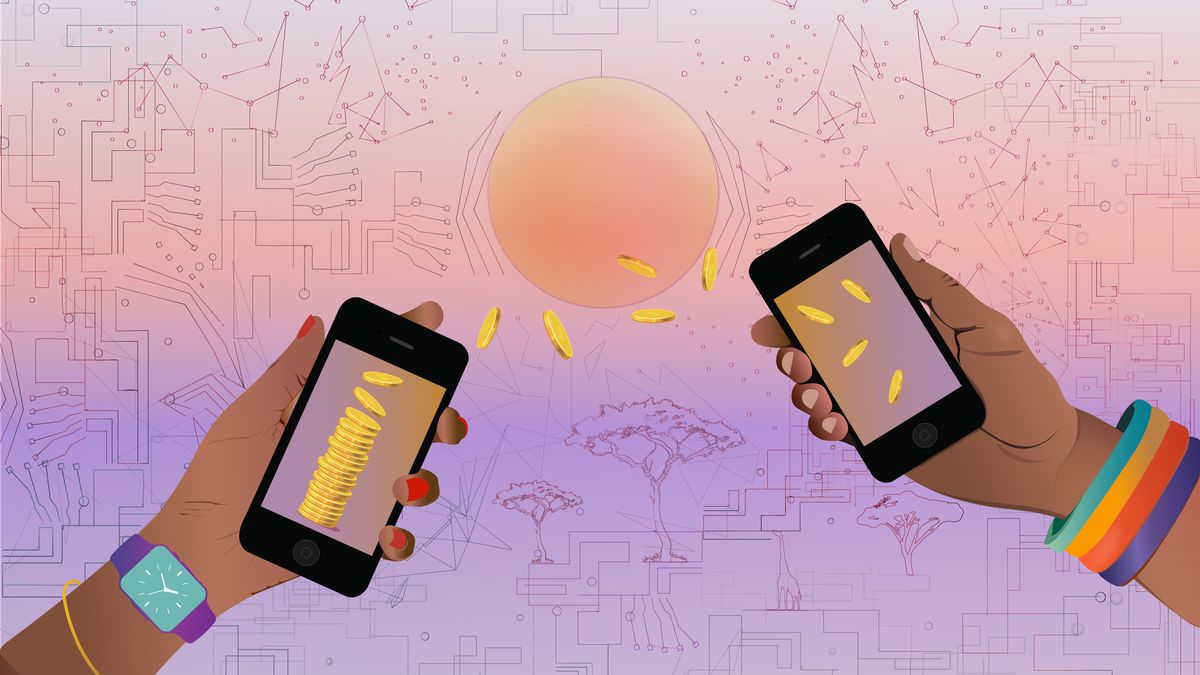In a rural village in Kenya, a woman sets out to do her food shopping for the day. She needs cash before she heads to the market, but the nearest bank would be several days’ walk. Instead, she takes out her phone and texts a password and a request for money. A few minutes later, she meets a man with a cellphone and receives cash from him — the withdrawal that she made on her phone. She heads off, ready to do her errands.
Welcome to the world of mobile money banking.
In much of the world, people don’t live near banks or have bank accounts. In Senegal, for example, only 8 percent of the population has a bank account . In Uganda, it’s 11 percent . For a long time, that meant those people were locked out of the financial system — unable to straightforwardly send money, save it, buy things without cash, or get loans. But in the age of the cellphone, it has become possible to access the key functions of a financial system without getting a formal bank account.
First taking off in Kenya in the early 2000s, cellphone-based banking in the country has in many ways surpassed payments systems we have in the US. Research suggests that the fast spread of these mobile money systems led to significant economic growth in the areas affected. More than a decade later, it’s not always easy to pay for your groceries on your phone in the US, but in parts of Africa, mobile money systems are ubiquitous. In Uganda, 43 percent of people have a mobile money account. In Kenya, it’s 72 percent. Customers make money transfers at an M-Pesa counter in Nairobi, Kenya, in 2011. In Kenya, 72 percent of people have a mobile money account. Mobile money systems are pretty simple. In a lot of ways, you can think of the apps that are widely used for mobile transactions in some African countries as equivalent to a send-your-friends-money app like Venmo. But Venmo requires linking to a bank or a credit card, which means anyone who doesn’t have one of those is locked out.
Mobile money accounts work sort of like Venmo, but with a key difference: No bank account is required. To make a deposit or get cash from the app, mobile money systems use human agents, people who hang out at key locations throughout the country — […]
